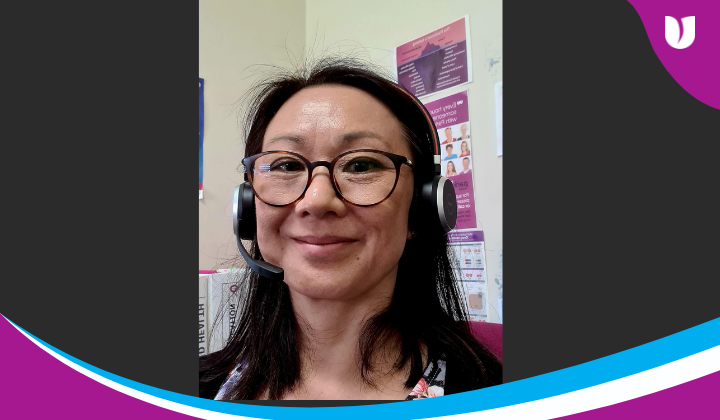“Finding information about being a woman with Parkinson’s was challenging”
By Kathleen Reardon
I was diagnosed with Parkinson’s in 2002. I’d noticed something not quite right at the age of 49 but it took over two years of disagreements about what was wrong with me – doctors disagreed, mainly because I had mostly non-motor symptoms at first.
I felt adrift. Then a doctor was visiting at the place where I had an appointment. The visiting doctor quietly walked up to me after I was told it wasn’t Parkinson’s and privately said, “Come see me. It looks like Parkinson’s to me”.
Women are heard differently in medical settings
I’m sure men experience a sense of feeling less attractive, but most cultures place a lot of emphasis on female beauty. Parkinson’s is largely a disease of older people and so it’s easy to feel older before you really are.
Facial masking can steal some of your sparkle and expressions can be misinterpreted. I found that a challenge at times even though my masking has been relatively minimal.
From earliest childhood, women are taught that it’s important to smile. Girls and women, more than boys and men, are expected to be and appear amicable, sensitive and empathic.
When our facial expressions don’t meet those societal expectations, people may take offense or withdraw as friends without ever even realising that they are reacting to something entirely out of our control. When it comes to doctors, they can assume that a woman with Parkinson’s disease is depressed because expectations of amicable expression are greater for women.
‘Complain’ has significant implications for women
I think it’s important for women to insist that their medical practitioners remove the word ‘complained’ from their records. Doctors are often taught to write, ‘The patient complained of x, y or z’. I explain to my doctors that the word ‘complain’ has more significant implications for women.
Research indicates that women are heard differently in medical settings. Doctors may inadvertently tune out if they consider what a female patient is saying as a complaint. While my doctors have smiled when I’ve mentioned this, they’ve changed their approach and in two cases taught their students to do the same.
They now write, ‘The patient explained, described, discussed or emphasised’. If nothing else, it raises their awareness to an unconscious bias.
As women with Parkinson’s, we need to listen to ourselves, and observe whether those around us, including our doctors, are hearing and heeding what we’re saying.
We must work on maintaining and strengthening the volume of our voices – work with a speech pathologist or seek out one of the many videos or other tools designed for this. It is important, too, to prioritise what we have to say, and emphasise issues and items that are high on our list.
You’re not alone
I was a preventive medicine researcher, so finding sources about Parkinson’s disease was not difficult. However, finding information about being a woman with Parkinson’s was challenging.
For those issues that are not clinical, including those regarding gender, other female Parkinson’s disease patients tend to be the best sources. Sharing provides understanding and empathy. It often leads to a sense that you’re not alone.
Finding resources focusing on women and Parkinson’s is still a challenge. Social media outlets have provided more opportunities to hear from and learn from women. If we had more opportunities for interactive discussions about issues particularly relevant to women, that would be useful.
Sources
First published by Parkinson’s Life
Kathleen Reardon was a professor at the University of Southern California, and a visiting professor at Stanford University, US, Trinity College Dublin and University College Dublin, Ireland, and a distinguished research scholar at the Irish Management Institute, Ireland. She moved to Ireland shortly after her diagnosis with Parkinson’s.






